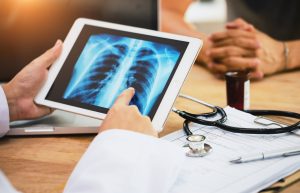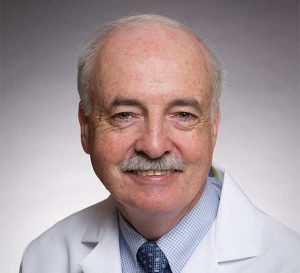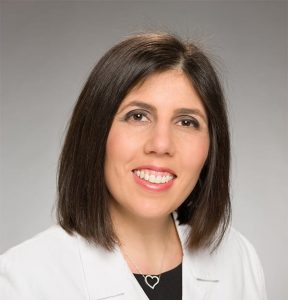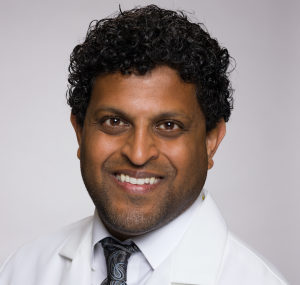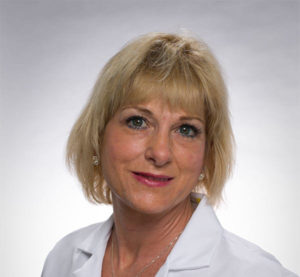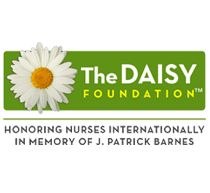Dr. Varki continues, “This large, nationwide study that established the benefit of CT screening in current and former smokers was reported in 2011. In the 12 years since then, numerous new treatments – including immunotherapies and targeted therapies – have been approved for lung cancer, and we’ve learned far more about how to use those therapies, as well as surgery and radiation therapy, in combinations and sequences to develop truly individualized care plans, making early recognition of lung cancer more beneficial to patients than ever.”
Lung cancer trends in New Jersey
An estimated 5,920 people across New Jersey will be diagnosed with lung cancer this year, and 2,800 Garden State residents are expected to die from the disease in 2023.4 (See accompanying table, “Lung cancer diagnoses and deaths: Recent trends in New Jersey.”)
“Lung cancer remains the leading cause of death from cancer and is projected to claim more than 127,000 lives across the United States this year,”4 notes Dr. Levenbach. “While we’ve made significant progress in recent years, survival rates remain much lower than they are for other common cancers. For example, the 5-year relative survival rate for localized lung cancer is 65%,5 compared to 99% for both breast cancer and prostate cancer.6,7 However, the lung cancer survival rate has increased in recent years, and is likely to rise even further given the abundance of newly approved treatments and other therapies in late stages of clinical evaluation. Further, the 5-year survival rate for localized cancer is almost twice that of lung cancer that has spread regionally, and much greater than the rate for lung cancer that has reached distant sites in the body, which underscores the importance of early detection through CT screening,” the cancer specialist adds.
Dr. Fitzgerald notes that treatment advances are one of the main reasons lung cancer deaths have declined statewide and in each of New Jersey’s 21 counties over the last few years.8 “Recently approved agents include therapies designed for first-line use in localized cancers and medications for people with metastatic lung cancer that has spread distantly on prior treatment. We have an array of options for all stages of lung cancer and can offer people with advanced disease several therapies that extend life and preserve quality of life.”
The medical oncologist adds, “At our RCCA care centers, we deliver the latest treatments to patients right here in the community. People don’t need to travel to a major academic medical center in a large city to receive cutting-edge therapies or participate in clinical trials. Making these treatments readily accessible in the community setting is critical not only for improving outcomes for the individual patient but also for reducing the overall toll that lung cancer takes.”
Dr. Varki explains that new cases of lung cancer also have been falling in New Jersey in recent years, with diagnoses dropping in 16 of the state’s 21 counties, while remaining stable in Cape May, Hunterdon, Ocean, Salem, and Warren counties from 2015 to 2019, the last period for which statistics are available.8
“The decline in lung cancer cases is driven primarily by reduced rates of smoking,” the medical oncologist says. He notes, however, “In New Jersey, about 11% of adults still smoke cigarettes.9 I urge those people to talk with their primary care provider about smoking cessation. There are a number of effective smoking-cessation approaches available, and even if you have been unsuccessful in past attempts to stop smoking, it is definitely worth another try as this may be the time you succeed.”
Words to live by from RCCA’s cancer specialists
Dr. Fitzgerald, who serves as RCCA’s board chairperson, says, “We have more than 90 cancer specialists practicing at 20+ locations across New Jersey, Connecticut, Maryland and the Washington DC area. Every one of those clinicians knows firsthand the terrible toll that lung cancer takes on individuals and on those who love them. We also know, however, that people with lung cancer have more treatment options, and more cause for hope, than ever before, particularly when their cancer is diagnosed early. To everyone out there who smokes, or who used to smoke, and who meets the criteria for CT screening, our message to you is simple: Don’t delay. Take advantage of this potentially life-saving test, both for the sake of your life, and for the people in your life who love you and want you with them.”
*******
Drs. Fitzgerald, Levenbach, and Varki are among the 90+ cancer specialists who treat patients at more than 20 RCCA care centers located throughout New Jersey, Connecticut, Maryland, and the Washington, DC, area. RCCA oncologists and hematologists see more than 23,000 new patients each year and provide care to more than 225,000 established patients, collaborating closely with their patients’ other physicians. They offer patients the latest in cutting-edge treatments, including immunotherapies and targeted therapy, as well as access to a wide range of clinical trials. In addition to serving patients who have solid tumors, blood-based cancers, and benign blood disorders such as anemia, RCCA care centers also provide infusion services to people with a number of non-oncologic conditions—including multiple sclerosis, Crohn’s disease, asthma, iron-deficiency anemia, and rheumatoid arthritis—who take intravenously-administered medications.
To learn more about RCCA, call 1-844-346-7222 or visit RCCA.com.
References:
- American Lung Association. State of Lung Cancer 2022. New Jersey. Available at https://www.lung.org/research/state-of-lung-cancer/states/new-jersey. Accessed April 18, 2023.
- S. Preventive Services Task Force. Final Recommendation Statement – Lung Cancer: Screening. March 9, 2021. Available at https://www.uspreventiveservicestaskforce.org/uspstf/recommendation/lung-cancer-screening. Accessed April 18, 2023.
- The National Lung Screening Trial Research Team. Reduced lung-cancer mortality with low-dose computed tomographic screening. N Engl J Med. 2011;365:395-409.
- American Cancer Society. Cancer Facts & Figures 2023. Available at https://www.cancer.org/research/cancer-facts-statistics/all-cancer-facts-figures/2023-cancer-facts-figures.html. Accessed April 18, 2023.
- American Cancer Society. Lung Cancer Survival Rates. Available at https://www.cancer.org/cancer/lung-cancer/detection-diagnosis-staging/survival-rates.html. Accessed April 19, 2023.
- American Cancer Society. Survival Rates for Breast Cancer. Available at https://www.cancer.org/cancer/breast-cancer/understanding-a-breast-cancer-diagnosis/breast-cancer-survival-rates.html. Accessed April 19, 2023.
- American Cancer Society. Survival Rates for Prostate Cancer. Available at https://www.cancer.org/cancer/prostate-cancer/detection-diagnosis-staging/survival-rates.html. Accessed April 19, 2023.
- National Cancer Institute. State Cancer Profiles. Available at: https://statecancerprofiles.cancer.gov/. Accessed April 18, 2023.
- State of New Jersey Department of Health. Tobacco control. Available at https://www.nj.gov/health/fhs/tobacco/. Accessed April 18, 2023
Lung cancer diagnoses and deaths: Recent trends in New Jersey
| Diagnoses | Deaths |
Location | Average
Annual Count,
2015-2019 | 5-year Trend | Average
Annual Count, 2016-2020 | 5-Year Trend |
United States | 223,216 | Falling | 142,497 | Falling |
New Jersey | 5,980 | Falling | 3,442 | Falling |
Atlantic County | 238 | Falling | 135 | Falling |
Bergen County | 595 | Falling | 331 | Falling |
Burlington County | 355 | Falling | 201 | Falling |
Camden County | 398 | Falling | 229 | Falling |
Cape May County | 129 | Stable | 68 | Falling |
Cumberland County | 122 | Falling | 81 | Falling |
Essex County | 391 | Falling | 225 | Falling |
Gloucester County | 249 | Falling | 150 | Falling |
Hudson County | 268 | Falling | 156 | Falling |
Hunterdon County | 76 | Stable | 44 | Falling |
Mercer County | 237 | Falling | 133 | Falling |
Middlesex County | 465 | Falling | 266 | Falling |
Monmouth County | 492 | Falling | 278 | Falling |
Morris County | 302 | Falling | 174 | Falling |
Ocean County | 711 | Stable | 395 | Falling |
Passaic County | 256 | Falling | 153 | Falling |
Salem County | 73 | Stable | 43 | Falling |
Somerset County | 166 | Falling | 98 | Falling |
Sussex County | 114 | Falling | 68 | Falling |
Union County | 248 | Falling | 156 | Falling |
Warren County | 95 | Stable | 57 | Falling |
Source: National Cancer Institute. State Cancer Profiles. Available at: https://statecancerprofiles.cancer.gov/. Accessed April 19, 2023.
